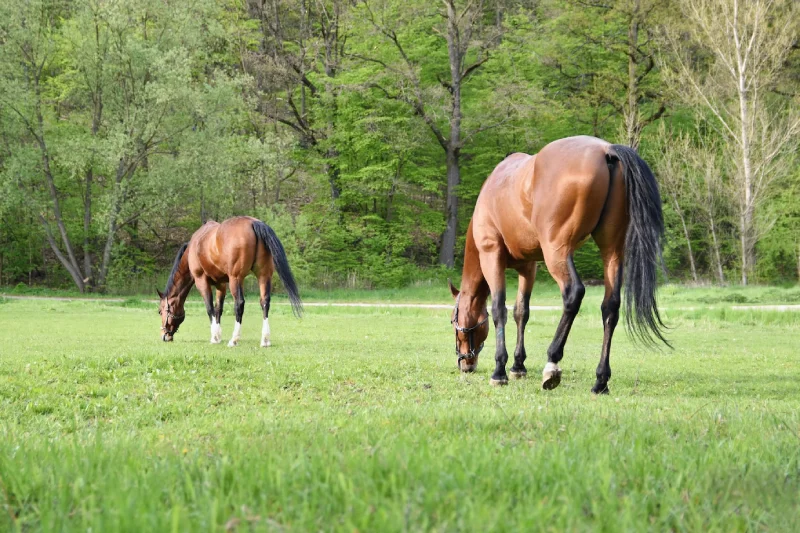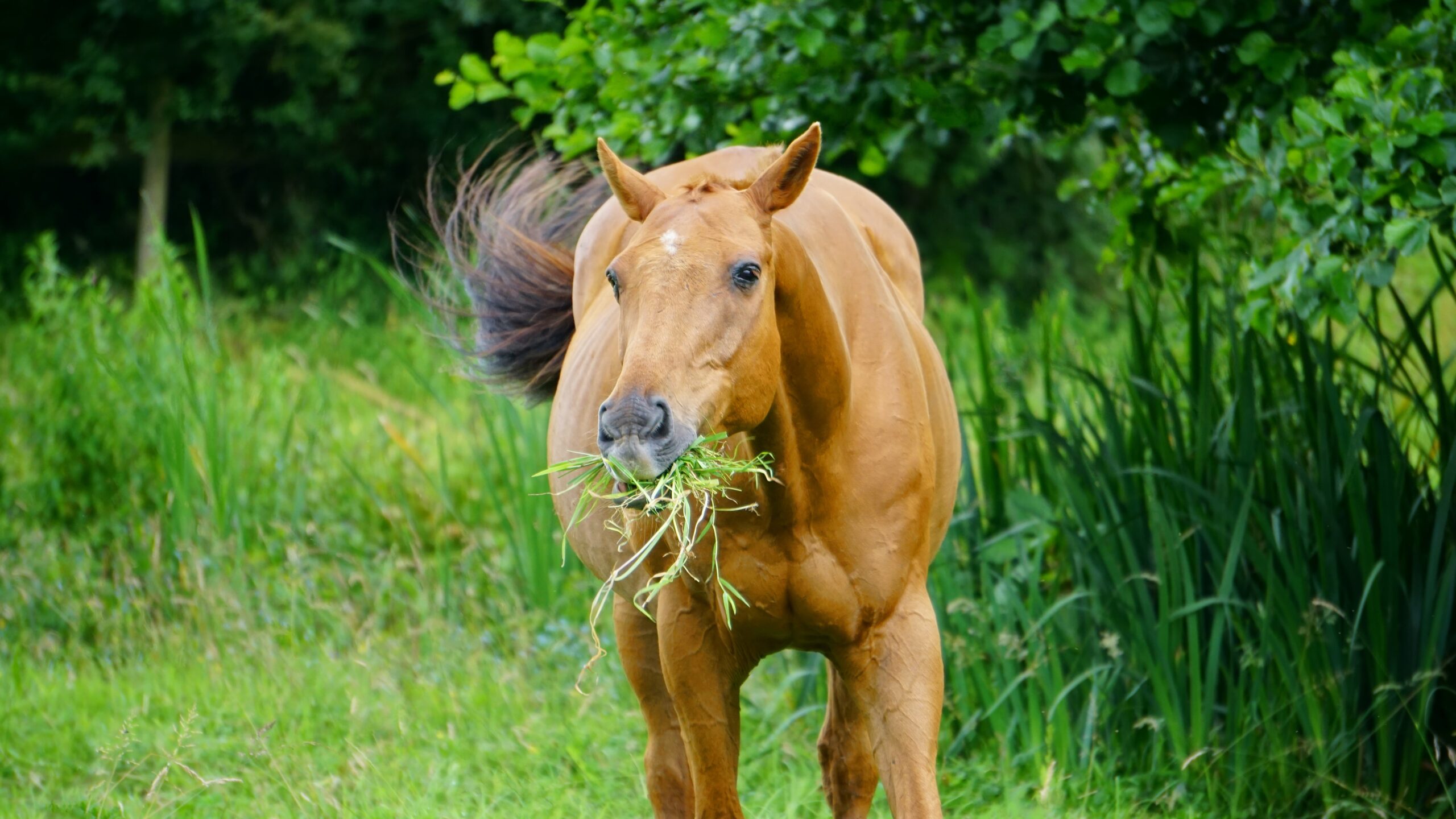Since they are herbivores, horses need a diet high in fiber, which primarily consists of grasses. It’s critical for horses’ health and wellbeing to consume the right kinds of grasses. Horses can consume a variety of grass species, and each species has distinct nutritional characteristics. The most popular grasses that horses eat and their nutritional advantages will be covered in this article.
Timothy Grass
Horses frequently consume the grass species timothy. It is a cool-season grass that is commonly grown in Canada’s and the United States’ northernmost provinces. Timothy grass is a great grass for horses with insulin resistance or those who are prone to laminitis since it is strong in fiber and low in sugar. Also, it has little protein, which makes it a great option for horses who are prone to urinary calculi.
Orchard Grass
Another cool-season grass that horses can eat is orchard grass. To give horses a more well-balanced diet, it is frequently combined with hay and other types of grass. Due to its high fiber content, orchard grass is a fantastic choice for horses who are prone to colic or digestive issues. Moreover, it has a lot of vitamins and minerals like potassium, calcium, and phosphorus.
Kentucky Bluegrass
A common warm-season grass in lawns and pastures is Kentucky bluegrass. Horses find it delightful and will eat it readily because it has a high palatability. Kentucky Bluegrass is a great option for horses that need additional energy or are involved in strenuous physical activity because it is high in proteins and carbs.
Bermuda Grass
Warm-season grass called Bermuda grass is cultivated in the southern parts of the United States. It is a great option for horses who are prone to gaining weight because it is high in fiber and low in protein. Calcium, magnesium, and potassium are among the vitamins and minerals that are abundant in Bermuda grass.
Fescue Grass
A cool-season grass called fescue is frequently found in hay and pastures. It is a great option for horses who are prone to obesity or digestive issues because it is strong in fiber and low in protein. Moreover, fescue grass is a good source of vitamins and minerals like potassium and phosphorus.

Ryegrass
A cool-season grass called ryegrass is frequently combined with other grass species to provide horses a more well-rounded diet. It is a great option for horses who are involved in strenuous physical activity or want additional energy because it is rich in protein and carbohydrates. Calcium, magnesium, and potassium are among the vitamins and minerals that ryegrass is particularly high in.
Clover
The legume clover is frequently found in hay and meadows. It is a great option for horses who require additional energy or are taking part in strenuous physical activity because it is heavy in protein and carbs. Vitamins and minerals like calcium, magnesium, and potassium are also abundant in clover.
In conclusion, horses’ health and wellbeing depend on the sort of grasses they eat. Every variety of grass has different nutritional qualities, therefore it’s crucial to give horses a diet that is balanced. Some of the most popular grasses that horses consume include timothy grass, orchard grass, Kentucky bluegrass, Bermuda grass, fescue grass, ryegrass, and clover. Horse owners may make sure their horses get the vital nutrients they require to flourish by including a variety of grasses in their diet.


